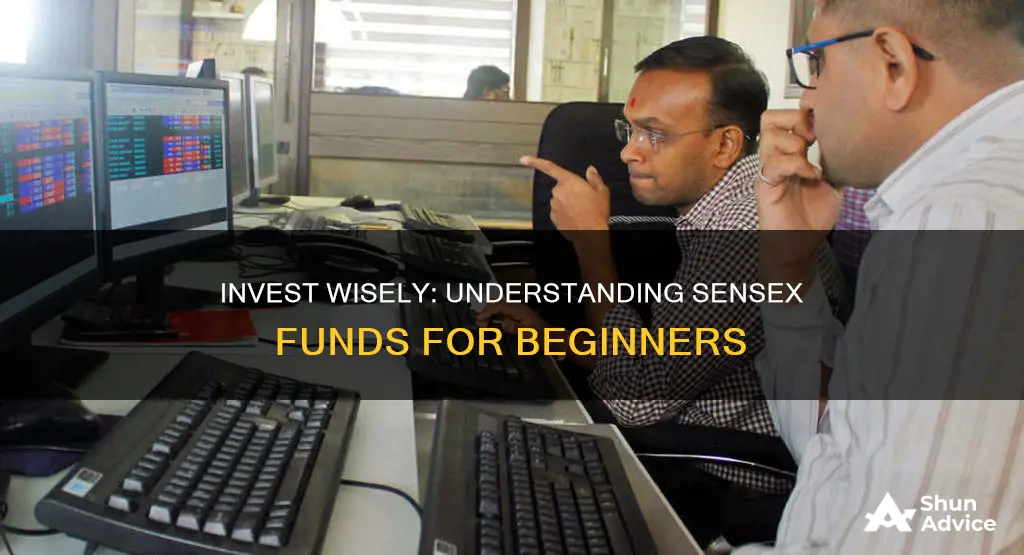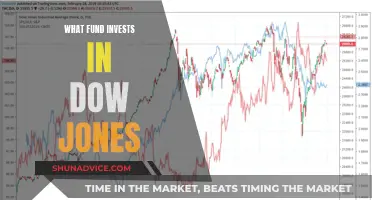
The BSE SENSEX index is a great choice for investors looking for a safer, more diversified investment with greater price stability compared to individual stocks. It is an index of 30 well-established and financially sound companies listed on the Bombay Stock Exchange, which is one of the oldest stock exchanges in India. These companies are selected from various sectors to effectively represent the broader market and are among the most actively traded and highly capitalized stocks.
There are several ways to invest in the SENSEX, each with its own advantages and considerations:
- Direct Stock Investment: This approach involves opening a brokerage account and investing directly in the 30 stocks that constitute the SENSEX, providing individual control over your investments.
- Exchange-Traded Funds (ETFs): These funds replicate the performance of the SENSEX and are traded on stock exchanges like individual stocks. They are ideal for beginners as they have a very low minimum investment and can be bought and sold throughout the day.
- Index Funds/Mutual Funds: Similar to ETFs, index funds aim to track the performance of the SENSEX but are only priced at the end of each trading day, allowing for once-per-day buying or selling. They may have a higher minimum investment.
- Contracts for Difference (CFDs): CFDs are derivatives that offer more flexibility than ETFs or index funds. They can be leveraged or used to short the index and can be bought or sold outside regular trading hours. However, they introduce more risk and are best suited for experienced traders.
- Futures Contracts: Futures are agreements to buy or sell the SENSEX at a future date and often involve leverage. They are used to speculate on the index's performance and can be a hedge against the performance of individual stocks.
- Individual Stocks: Instead of investing in the entire index, you can invest directly in the most heavily weighted stocks, which tend to be the largest companies by market capitalization. This approach provides more control over your investments but requires hands-on management and may not offer the same diversification benefits as the other options.
| Characteristics | Values |
|---|---|
| What is SENSEX? | Short for the Sensitive Index, it is a Market Index consisting of 30 companies listed on the Bombay Stock Exchange (BSE) |
| How is it calculated? | Free Float Market Capitalization = Market Capitalization*Free Float Factor |
| How often is it calculated? | Twice a year, in June and December |
| Who decides which stocks are included? | BSE has the authority to revise the list |
| What are the criteria for inclusion? | Companies must be large or mid-sized, have high liquidity, substantial revenue from core activities, and help balance the sector |
| How to invest in SENSEX? | Open a Demat and Trading Account, choose your investments, and either buy stocks directly or invest in index mutual funds or Exchange-Traded Funds (ETFs) |
| What are the benefits of investing in SENSEX? | Provides instant diversification, includes the biggest Indian companies, potential for future growth, and potential for currency diversification |
| What are the risks of investing in SENSEX? | All underlying companies are related, so a broad economic downturn could affect the entire index |
What You'll Learn

Open a Demat account
To start investing in the Indian stock market, you will need to open a Demat account. A Demat account is an electronic account that holds and manages your investments, such as stocks, bonds, and mutual funds, in a digital format. It is similar to a bank account, where you deposit money and earn interest. With a Demat account, you can buy or sell financial securities without the need for physical share certificates. This not only saves time but also reduces transaction costs.
Choose a Depository Participant:
You will need to select a depository participant, such as CDSL or NSDL, to open your Demat account. A depository participant acts as an agent between you and the depository and helps facilitate the process.
Submit Documents:
To open a Demat account, you will typically need to provide proof of identity and address. In India, this usually includes a PAN card and Aadhaar card. Some brokers may require additional documents, such as a salary slip, bank statement, or income tax return.
Fill Out the Account Opening Form:
You will need to fill out an account opening form provided by your chosen depository participant. This form will require personal information, such as your name, date of birth, address, and contact details. You may also need to provide information about your bank account, which will be linked to your Demat account.
Complete the In-Person Verification (e-IPV):
To complete the account opening process, you will need to undergo an in-person verification process. This can be done through a video call or by visiting the broker's office. During the verification, you will need to submit the required documents and provide your signature.
Receive Your Account Details:
Once your account opening form and documents have been verified, you will receive your Demat account number and other relevant details. You may also be provided with a physical copy of your account details and a welcome kit.
Start Trading:
After your Demat account has been activated, you can start investing in the stock market. You can buy and sell shares, mutual funds, or other financial securities through your broker or online trading platform. Remember to monitor your investments regularly and make informed decisions based on your financial goals and risk tolerance.
It is important to note that there may be additional steps or requirements depending on the specific broker or depository participant you choose. Make sure to carefully review their account opening process and requirements before proceeding.
Money Market Funds: Where Are Your Investments Going?
You may want to see also

Open a trading account
To start investing in the Sensex, you will need to open a trading account. This is because the Bombay Stock Exchange (BSE) does not allow the direct purchase or sale of securities. With a trading account, you can easily buy and sell securities online.
To open a trading account, you will need to register with either a registered broker or a brokerage platform. You will also need to have a demat account, which holds your shares in electronic form, and a bank account. A PAN card is also required to trade on the Sensex.
Once your trading account is open, you can begin to invest in the constituents of the Sensex and the weightage they have in that particular index. However, it is generally recommended to invest in index mutual funds or Exchange-Traded Funds (ETFs) to gain exposure to the Sensex.
Invest in Fundsmith Equity Fund: A Comprehensive Guide
You may want to see also

Direct stock investment
To invest directly in stocks that are part of the SENSEX, you will need to open a Demat account, a trading account, and a bank account.
A Demat account is an account that holds your shares in electronic form. You will also need to register with a broker or brokerage platform to open a trading account, as direct purchases or sales of securities are not allowed by the BSE. With a trading account, you can buy and sell securities online.
Once your accounts are open, you can start investing directly in the constituents of the SENSEX. This means you can buy stocks directly in the same percentage as their weightage in the SENSEX. For example, if a stock has a 15% weightage in the SENSEX, you would buy enough of that stock to make up 15% of your total investment.
However, it is important to note that investing directly in stocks based on their weightage in the SENSEX can be expensive. This is because, in India, you cannot buy a fraction of a stock, so you must buy a complete stock even if it is more than you need for the desired weightage. Additionally, the weightage of stocks can change daily, so managing your stocks can become very difficult.
Therefore, while it is possible to invest directly in the stocks that make up the SENSEX, it may be more cost-effective to consider other options, such as investing in index mutual funds or Exchange-Traded Funds (ETFs).
Index Funds: NerdWallet's Guide to Smart Investing
You may want to see also

Exchange-traded funds (ETFs)
ETFs have several advantages over other investment options:
- They provide access to a diverse mix of asset classes, including domestic and international stocks, bonds, and commodities.
- They typically have lower operating expense ratios (OERs) than actively managed mutual funds, making them a more affordable investment option.
- They combine the trading versatility of individual securities with the diversified qualities of mutual funds, helping to lower risk and exposure while diversifying your portfolio.
- They are widely considered more tax-efficient than actively managed mutual funds.
However, there are also some potential drawbacks to consider:
- Trading costs: If you invest small amounts frequently, there may be lower-cost alternatives, such as investing directly with a fund company in a no-load fund.
- Illiquidity: Some thinly traded ETFs have wide bid/ask spreads, which can result in buying at a higher price and selling at a lower price.
- Tracking error: While ETFs generally track their underlying index well, technical issues can create discrepancies.
Overall, ETFs are a popular investment vehicle as they provide access to a wide range of asset classes and offer potential benefits such as diversification, lower costs, and tax efficiency.
Hedge Funds: Unfair Advantage Over the Public Investors?
You may want to see also

Index mutual funds
- Market Representation: Sensex index funds cover leading companies across various sectors, including finance, technology, and consumer goods, providing a comprehensive snapshot of market performance.
- Passive Management: These funds require minimal buying and selling of stocks, resulting in lower transaction costs.
- Simplicity: Sensex index funds offer a straightforward approach to investing without the need to analyze individual stocks.
- Diversification: Even though the Sensex covers only 30 stocks, it spans multiple sectors, offering diversified exposure within a single investment.
- Comparatively Lower Risk: Sensex index funds invest in large-cap, well-established companies, making them less volatile than funds that focus on smaller companies or individual stocks.
- Ease of Investment: Tracking a well-known index like the Sensex reduces the complexity and research needed to invest, making it a more accessible way to enter the stock market.
- Stability and Safety: The companies included in the Sensex are typically well-established, providing a level of safety and stability to investors.
When deciding whether to invest in Sensex index funds, consider your investment goals and risk tolerance. These funds are ideal for those seeking a balance between stability and growth and are particularly suitable for new investors, risk-averse investors, and long-term savers.
- HDFC Index Fund-BSE Sensex(G)
- ICICI Pru BSE Sensex Index Fund(G)
- LIC MF BSE Sensex Index Fund-Reg(IDCW)
- Tata BSE Sensex Index Fund-Reg(G)
- Nippon India Index Fund-BSE Sensex Plan(G)
- SBI BSE Sensex Index Fund-Reg(G)
- Navi BSE Sensex Index Fund-Reg(G)
- Axis BSE Sensex Index Fund-Reg(G)
Gold ETF Funds: A Guide to Investing in India
You may want to see also







